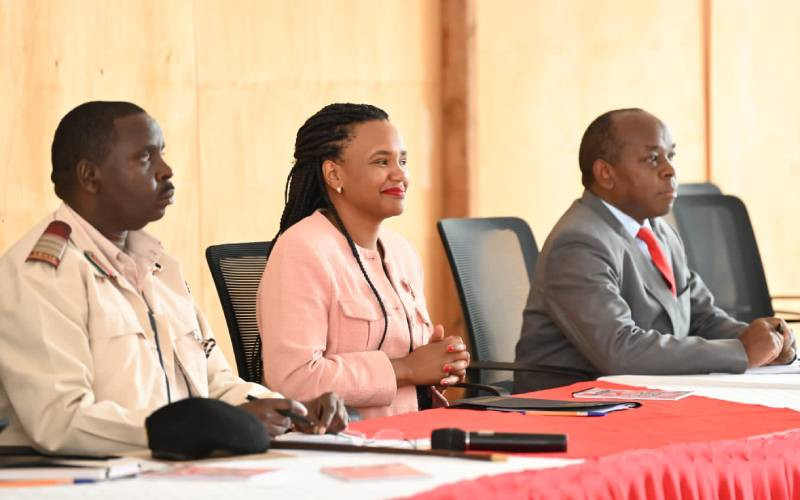×
The Standard e-Paper
Fearless, Trusted News

Diaspora Affairs Principal Secretary Roseline Njogu and Kiambu County Commissioner Joshua Nkanatha led a public participation exercise at Kiambu National Polytechnic. [Interior Ministry]
Kenyans will now have a better chance to give their views on the next budget after the government engaged the National Government Administration Officers (NGAOs) to conduct public participation.